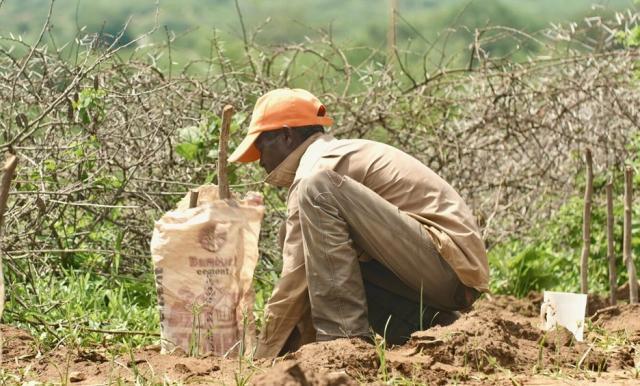
When members of the Diakonia of The United Church of Canada (DUCC) prepared to travel to Tanzania for the World Diakonia Conference, they knew their flights would carry a heavy carbon cost. Together, they decided to take collective responsibility for that footprint.
At the time, The United Church of Canada didn’t yet have a carbon offset program. DUCC members were determined to find a credible and meaningful way to act. They reached out to the Canadian Foodgrains Bank and contributed to its Nature+ program, which supported communities in Kenya, Ethiopia, Mozambique, and Zimbabwe who were revitalizing the land through nature-based solutions: planting trees, restoring soil, improving biodiversity, and strengthening food security.
Their example inspired change. Because of the DUCC members’ faithful leadership in charting a path, the United Church established a carbon offset option through Mission and Service. This made it possible for anyone travelling for church work or personal reasons to contribute to a climate action project supported by Mission and Service and the Canadian Foodgrains Bank.
Through this partnership, the National Council of Churches of Kenya (NCCK) is working closely with communities in Kitui County to provide training on conservation agriculture and other sustainable farming techniques, beekeeping, and land and water conservation, reaching more than 11,000 people adapt to climate change. The United Church accompanies the NCCK on this exciting climate initiative.
What began as one group’s effort to travel responsibly grew into an ongoing movement of faithful action. Today, your gifts for Mission and Service continue to support this carbon offset program, caring for creation and planting seeds of hope around the world.